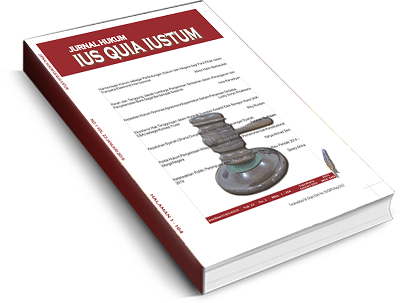Main Article Content
Abstract
Law-making is as a part of regulating state, is also demanded to transparency, participation and accountable. This will create legislation products that democratic and benefit for arrangement af state to bring into good governance with the 1945 Constitution as basic constitutional. In this research, I will examine one main problem: how public participation in legislative process? This research employs a sociological perspective , especially sociology of legislation. This reseach focuses on three legislations, i.e. Act on National Education System, Act on General Elections, and Act of Labor and the result shows as follows. Frist, the law-waking process in the reformation era has occurred changes in several aspects, such as representative institution, public interests, regulatory and law-making process. Second, public participation in the law-making process can be identified in several matters, such as people who participate, form of participation, method of participation, subject matter of participation, absorb of participation, and stages of participation. Third, public participation conducted in law-making process of the three Acts can affect in various law-making process. Therefore, it is expected that legislations enacted close to justice, compliance and legal certainty for society. Four, law-making process in the reformation era has opened public access and involved various political forces and society.
Key word : People participation, process of acts formulation
Article Details
Authors who publish with this journal agree to the following terms:
a. Authors retain copyright and grant the journal right of first publication with the work simultaneously licensed under a Creative Commons Attribution License that allows others to share the work with an acknowledgement of the work's authorship and initial publication in this journal.
b. Authors are able to enter into separate, additional contractual arrangements for the non-exclusive distribution of the journal's published version of the work (e.g., post it to an institutional repository or publish it in a book), with an acknowledgement of its initial publication in this journal.
